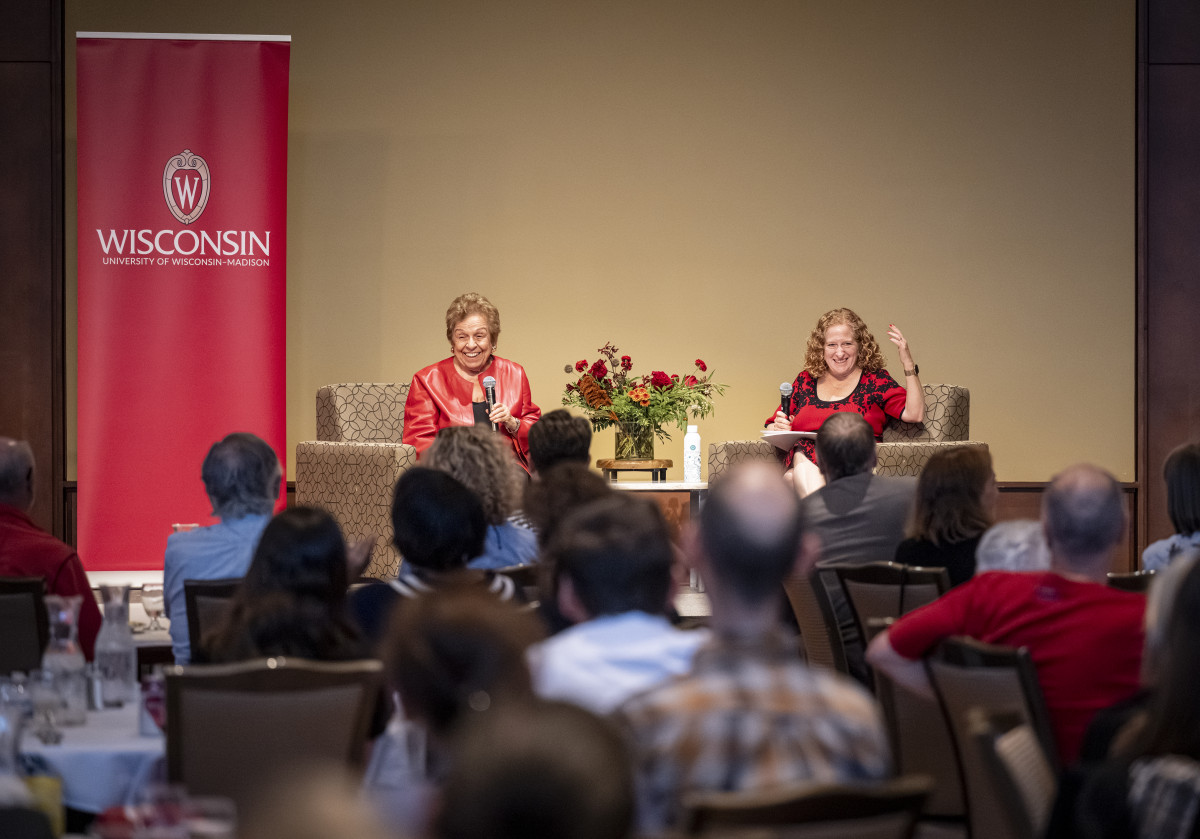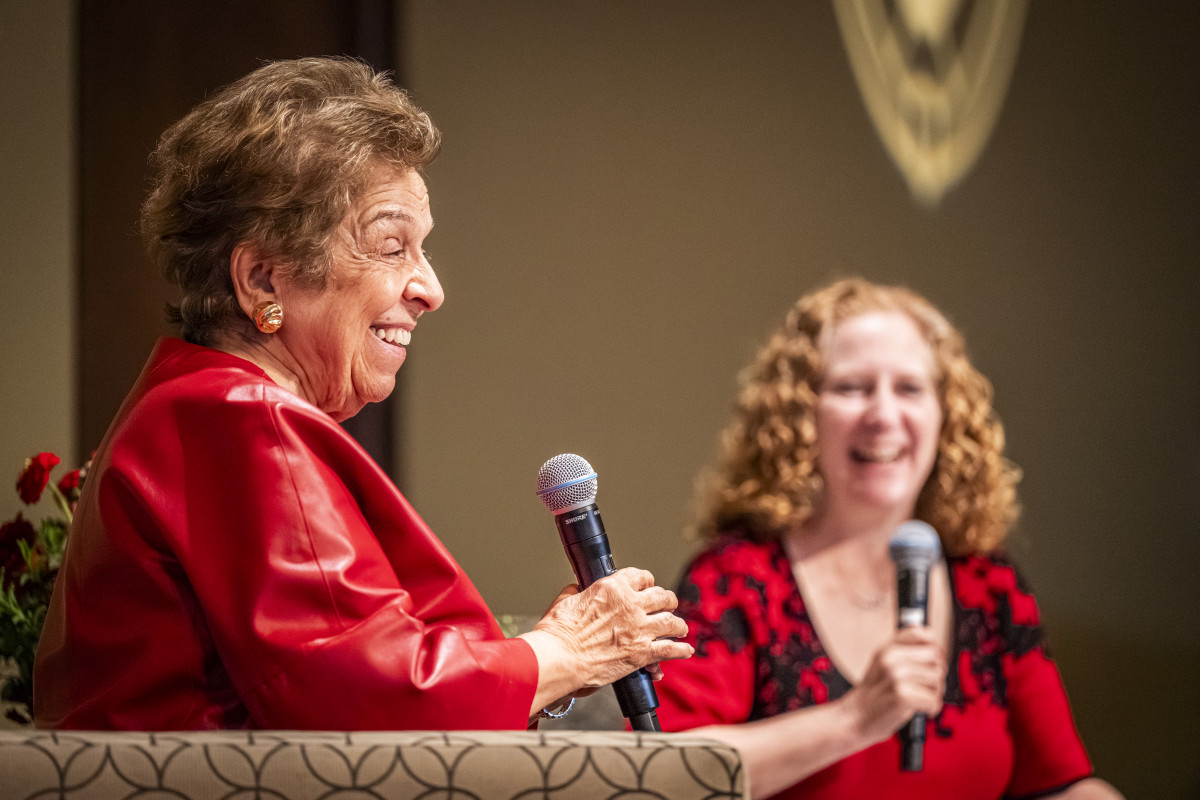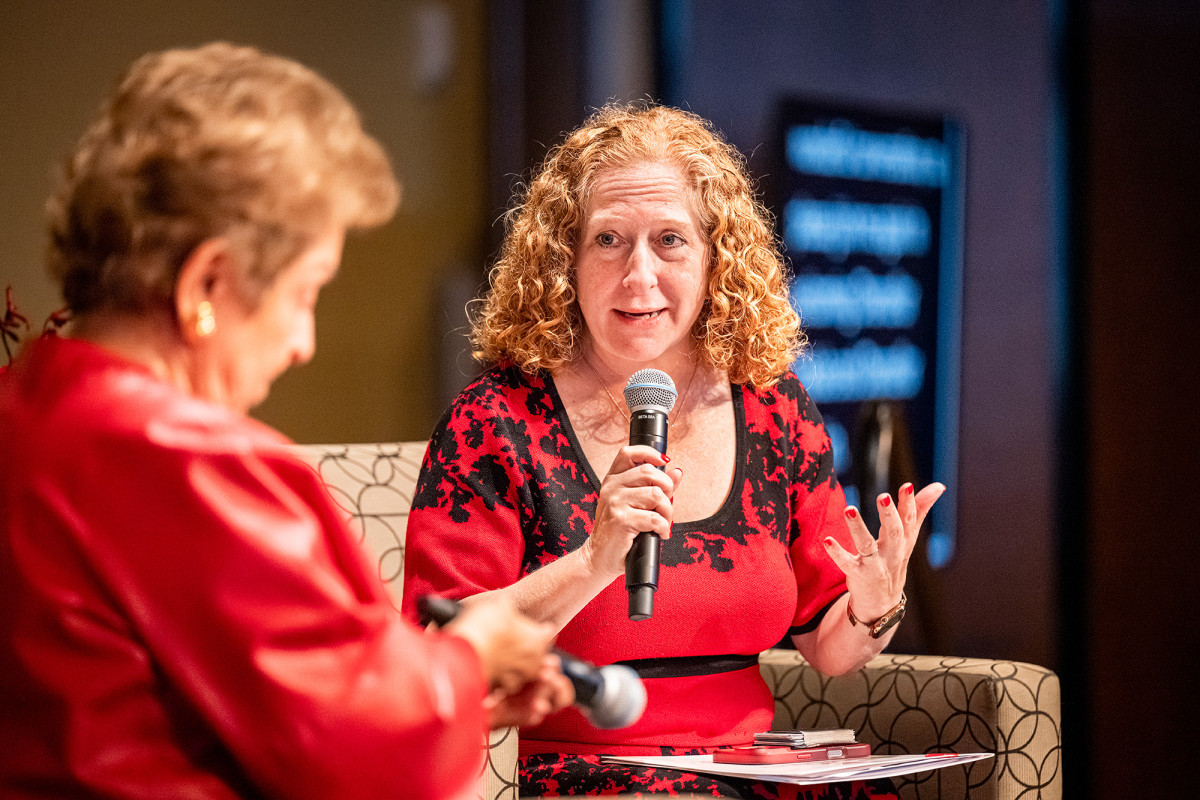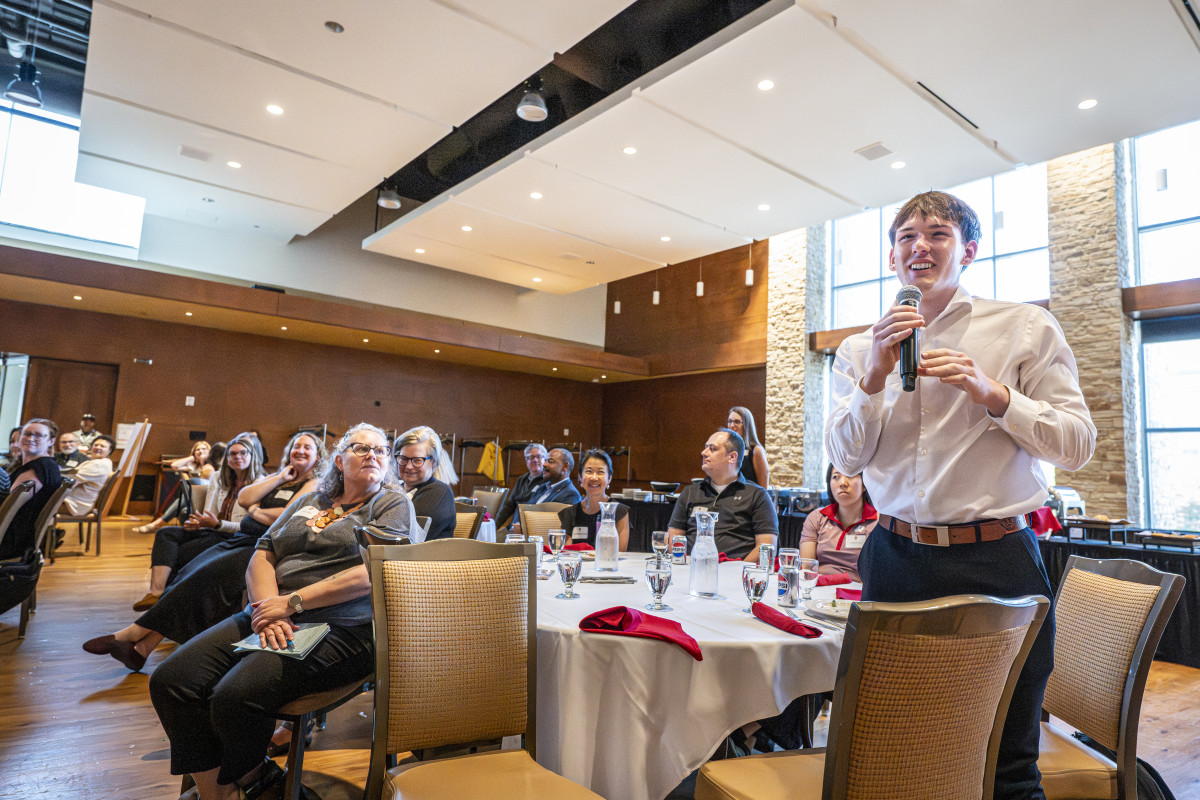Chancellor Mnookin and former Chancellor Shalala discuss higher education then, now and next

On Monday, Sept. 22, Chancellor Jennifer L. Mnookin and former Chancellor Donna E. Shalala sat down for a lively and wide-ranging conversation about pressing issues in higher education, from state relations and research ecosystems to collegiate football and importance of productive disagreement.
“I like jobs where there’s real challenges to get better and where it is possible to bring the community together,” Shalala said. “It was an extraordinary opportunity to lead UW–Madison. You are very lucky to have Jennifer Mnookin as your chancellor now. She is extraordinary.”
During their public fireside chat, both leaders compared their experiences in higher education. Shalala served as chancellor at the University of Wisconsin–Madison from 1988 to 1993, prior to serving as secretary of the U.S. Department of Health and Human Services and later as a congresswoman in the U.S. House of Representatives. Throughout her career, she meaningfully shaped public health policy, educational outcomes and the academic community.
Even with thirty years between their time as chancellor at UW–Madison, the two found similarities in the challenges facing higher education including the importance of communicating the value of higher education, facilitating a thriving research enterprise, and creating opportunities for discussions across differences in the classroom and beyond.
As a public university, UW–Madison aims to serve Wisconsinites through research and education. Whether that means bolstering undergraduate academics, improving students’ feeling of belonging on campus or prioritizing research questions based on the needs of farmers across the state, both Shalala and Mnookin agree that if something is important to the people of Wisconsin, it ought to be important to the university and its chancellor.

Shalala shared that when she was chancellor, she would hand out her phone number to parents of first year students. Mnookin eagerly asked if anyone had ever taken Shalala up on the offer and actually called her. It turns out, one particularly worried mother did, anxious that she had not heard from her son in three weeks. Minutes later, Shalala made a call and was greeted by a groggy, confused hello from a first-year Badger.
“He was clearly asleep,” Shalala recalled. “He answered the phone, and I said, ‘Call your mother.’ He said, ‘Who is this?’ I said, ‘The chancellor.’ He said, ‘yes ma’am!’”
When not coordinating the occasional call between mothers and sons, one of Shalala’s top priorities was communicating the value of higher education to Wisconsinites, something that remains a focus for Mnookin.

“It is not a given that a medium-size state like Wisconsin would have a public university as strong as this one,” said Mnookin. Just this week, UW–Madison moved even higher in national rankings by U.S. News and World Report to 36th overall and 12th among publics. Continued Mnookin, “That’s the result of a huge number of decisions over many, many decades and generations. Institutions like these are precious and imperfect—we have ways that we can improve—but at the same time, there is so much that is valuable.”
Part of that value includes the role of institutions of higher education in facilitating research ecosystems that produce a skilled workforce, find new cures for diseases and support a healthy economy for Wisconsin and the nation.
Reflecting on a trip to Japan during her time as chancellor, Shalala recalled the beautiful garden of the foreign minister who hosted her. She asked if his gardener could come to Madison to make her garden just as beautiful. The foreign minister replied that it would take his gardener plus 100 years to make another garden like his. The idea reminded Shalala of research in higher education.
“That kind of investment over a long period of time is fragile. We need to be careful in this country about the conversations that we are having, about the kind of investments that we want to make.” Shalala said. “We cannot relax now. We spend so much time and resources investing in universities to give young people opportunity. I think our job as leaders is to rally everyone and say even though we have differences, we still have to move ahead, keep improving and not give up hope.”

Engaging in dialogue across difference is a priority Chancellor Mnookin champions today. Mnookin believes that universities are precisely the place for different ideas to be shared so they can bump up against each other, inspire meaningful conversation and spark exploration rather than exacerbate polarization. Through events like Chats with the Chancellor, Deliberation Dinners and everyday classroom discussions, Mnookin encourages students and all of campus to learn how to disagree with one another productively.
“It requires genuine curiosity about people who see the world differently from you,” Mnookin said.
“And compromise. We are interested not in the survival of our institutions but in them thriving, and it always requires compromise,” Shalala added.
Missed the talk or want to see it again? A recording of the event is available.




